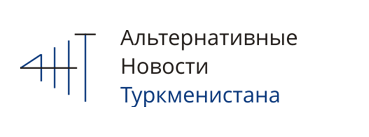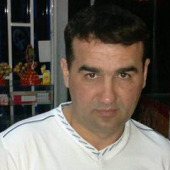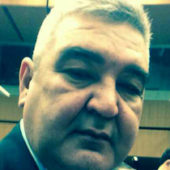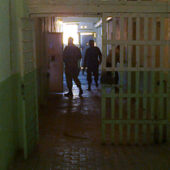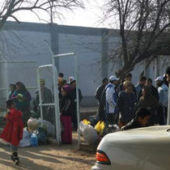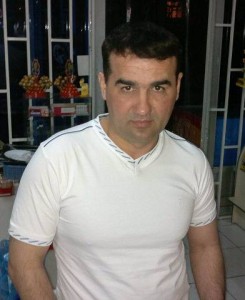 The health condition of Mansur Mingelov, an imprisoned activist, has worsened in recent weeks, as he was unable to receive proper medical assistance at LB-K/11 strict regime labor camp in Seydi, Lebap province. Last week Mingelov’s relatives found him in the medical unit of the camp, “skin and bones,” with prison doctors failing to provide him with necessary treatment.
The health condition of Mansur Mingelov, an imprisoned activist, has worsened in recent weeks, as he was unable to receive proper medical assistance at LB-K/11 strict regime labor camp in Seydi, Lebap province. Last week Mingelov’s relatives found him in the medical unit of the camp, “skin and bones,” with prison doctors failing to provide him with necessary treatment.
On June 10, Mingelov’s health worsened. He asked to be taken to the medical unit of the camp because of heart pains and high blood pressure. During the three days of his hospitalization, Mingelov did not receive any cure or medicine. When his relatives came to visit him, they rushed back to the city of Seydi to buy medicines for him. After three days in the prison’s medical unit, Mingelov was sent back to the main camp.
On June 21, Mingelov’s relatives visited him again, only to find him back at the prison’s medical unit. He spent five days lying on a bench in the kitchen because doctors refused to take him to the hospital without receiving a kickback.
“Mansur is nothing but skin and bones now,” his relatives told ATN. “While we were with him, his body temperature rose to 41 degrees Celsius, which the doctors did not consider an emergency. It seemed they were just waiting for him to die.”
Mingelov’s diagnosis is not known, prison doctors refuse to talk about it. After a 19-day hunger strike held in 2014, he temporarily lost the use of his legs. He cannot stand for a long time.
Negligent and even criminal attitude from the prison guards and doctors is not a novelty. On 26 September 2017, Allanazar Yarmamedov, 46, fell ill with chest pains and abdominal spasms. He called for a nurse, who advised medical help. To reach the prison’s hospital, which is located in a separate isolated zone, the prisoner needed a supervisor’s permit. At the checkpoint, however, the guard refused to call a doctor and a stretcher for Yarmamedov and turned the convict away.
“I will not let you inside the hospital, even if you die here!” the guard told Yarmamedov.
Only 20 minutes later, a doctor rushed to the checkpoint and took the convict inside with him, after a heated argument with the guard. At that point, Yarmamedov was barely breathing. He was diagnosed with a heart attack. The doctors, however, failed to take any measures during this emergency. Only the intervention of Begench Khalnazarov, a doctor who happened to visit the unit, saved Yarmamedov. When Khalnazarov asked the doctors about their negligence, they said they could not do anything because they lacked medicines. Khalnazarov managed to quickly gather the necessary medicines from other wards and saved Yarmamedov’s life, albeit only temporarily. The following day the head of the medical unit Mamedov, told the ill prisoner that he needed to “pay up” if he wanted further treatment. The ailing convict said that he could not immediately pay, but that he would call his relatives to gather some money.
Until his relatives arrived, fellow convicts helped him gather the necessary medicines to survive. Yarmamedov’s relatives brought medicines and money. After receiving the bribes, the doctors changed their attitude towards Yarmamedov. Two weeks later, the convict was released from the prison’s medical unit and should have been transferred to MR-B/15, a prison hospital in Mary. For that, he had to pay a bribe for “the transfer.” Since Yarmamedov had run out of money for bribes, he continued to be treated in his prison cell.
***
Mansur Mingelov is a Baloch activist from Mary province. He was first arrested on 6 June 2012, one day after his brother’s arrest. Mingelov was sent to a rehab facility for people who use drugs for 15 days, just because the police wanted to cover up the marks that they had left on him after long beatings. During these 15 days, he was twice enticed with drugs and he was later asked to sign a blank sheet of paper, which would have been used for a false confession.
Mingelov was released on 22 June 2012, in the absence of any reasonable charges against him. After his release, Mingelov appealed to the Prosecutor-General’s Office and to Turkmenistan’s President with a letter denouncing the torture he suffered by the State Service for Security Protection of a Healthy Society (formerly known as State Drugs Control Service). Between 22 June and 2 August, when he was arrested again, Mingelov collected evidence and documented 11 cases of torture and ill-treatment of other members of Baloch community in Mary province. He sent copies of testimonies on compact discs to the Prosecutor-General’s Office, the OSCE Center and the U.S. Embassy in Ashgabat.
Reports from various people included allegations of law enforcement officers harming detainees’ bones with chisels, pulling the scrotum with pliers, and the use of electric shock, chair legs and plastic bottles for beatings and torture.
Mingelov’s expose of the crimes of Turkmenistan’s narcotics police was the informal reason for his second arrest. During the first five days of his detention, the authorities fabricated a criminal case against him. Despite many contradictions and discrepancies in the case, the court found Mingelov guilty and sentenced him to 22 years in prison on charges of drugs trafficking, production of pornography, and involving minors in “antisocial activities.”
In April 2014, Amnesty International started a global campaign for Mingelov’s case, calling for the Turkmen authorities to prevent his transfer to the Ovadan-Depe prison, where he had suffered beatings in the past.
In May 2014, while in prison, Mingelov went on an indefinite hunger strike in protest against his unlawful sentence. This drew the attention of international human rights organizations and his name was cited widely in the global human rights campaigns of Amnesty International and other organizations, as well as in U.S. State Department reports.
